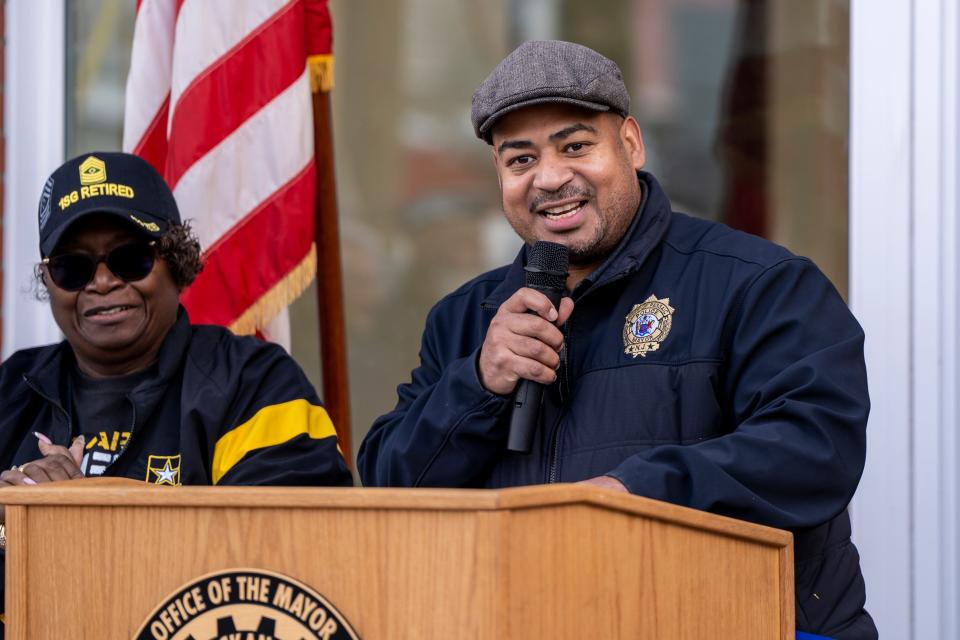Passaic OKs accessory dwelling units to add to its affordable housing stock
PASSAIC — The city has approved two new affordable housing measures: one to allow for accessory dwelling units and the other to require affordable units in new construction of residential dwellings of five units or more.
Through the resolutions proposed by Mayor Hector Lora and approved by the City Council last week, the city joins others that allow for accessory dwelling units, including Princeton, Montclair and Maplewood. Passaic has gone further by adding an extra affordable housing requirement it calls set-asides.
Passaic's accessory dwelling units
Accessory dwelling units are housing units added to an existing home, such as a basement apartment, a tiny house in the backyard or an apartment over the garage.

Lora said he has received approval from Housing and Urban Development to create a pilot program to use block grants to help homeowners who want to add accessory units to get as much as $40,000 to offset the costs.
Adding an accessory apartment to a home can increase a property owner's revenue stream, Lora said, while expanding the city's affordable housing stock. The hope is to help property owners pay off their mortgages, pay property taxes and remain in the community.
"Why should seniors have to move away from their families?" he asked.
It will also provide affordable living space for young families, who can save money by staying close to their families while maintaining a private space. This approach is meant to provide incentives rather than mandate compliance, Lora said.
Passaic's pilot program mirrors the governor's incentive housing program's $10 million proposal, in which 10 or more municipalities would be awarded up to $1 million through a competitive grant process to build accessory dwelling units.
The state is proposing that municipalities that partner with nonprofits can provide up to $100,000 in forgivable capital loans and construction financing to homeowners looking to build or redevelop accessory dwelling units.
In return, homeowners who receive the assistance would have to have a minimum 10-year deed restriction to reserve the unit for renters or buyers who make under 80% of the area's median income. Passaic's ADU program goes further by requiring a 20-year deed restriction.
“Our budget will increase funding for the construction of new affordable housing units all across New Jersey,” Gov. Phil Murphy said in his budget address. “We need to keep building. Because New Jersey is popular — and the demand for housing continues to outpace supply.”
While New Jersey's grants are expected to be competitive, the mayor said, it is meant to be an incentive for suburban municipalities to add affordable units.
These measures, besides creating more affordable places to live, also build wealth, Lora said. For many people, their home, which they have spent 30 years paying off, is their biggest asset.
Passaic's housing set-asides
Passaic also passed a 20% set-aside for affordable units in new construction of five units or more. This, too, is meant to provide additional affordable housing in the city.
Lora said it is meant to give opportunities to people who want to live in certain areas of the city, such as near a train station, high school or downtown. It will provide additional opportunities, especially since the city has approved multi-level mixed-use buildings with multiple housing units combined with businesses along Main Avenue.

"It is never a good idea to have a concentration of low-income people in one area," Lora said.
City Councilman Terrence Love agreed with Lora that more affordable housing is sorely needed in the city.
"We have a number of really brilliant people who are coming out of college that need to pay off their student loans," he said.
Love added that the city's approach provides additional opportunities for people to stay in their hometown and strengthens the community as a whole.
Home improvement moratorium
A third measure Lora is pushing for would encourage home improvements. Homeownership is often a family's most important investment, but rising taxes and other expenses can keep property owners from upgrading their properties.
If a homeowner plans to make home improvements without adding square footage, Lora said, he wants to make sure the city does not automatically reevaluate the property assessment. Though he would like to see this happen statewide, he said he will start with a city ordinance.
All of the measures, the mayor said, are part of what he calls a holistic approach to help middle-class homeowners and local businesses. Increased value helps people gain wealth, and affordable housing helps the youngest generations and immigrants. Keeping families together strengthens the community, and people with more disposable income strengthen local businesses, he said.
This article originally appeared on NorthJersey.com: Passaic OKs resolutions that will add to its affordable housing stock

